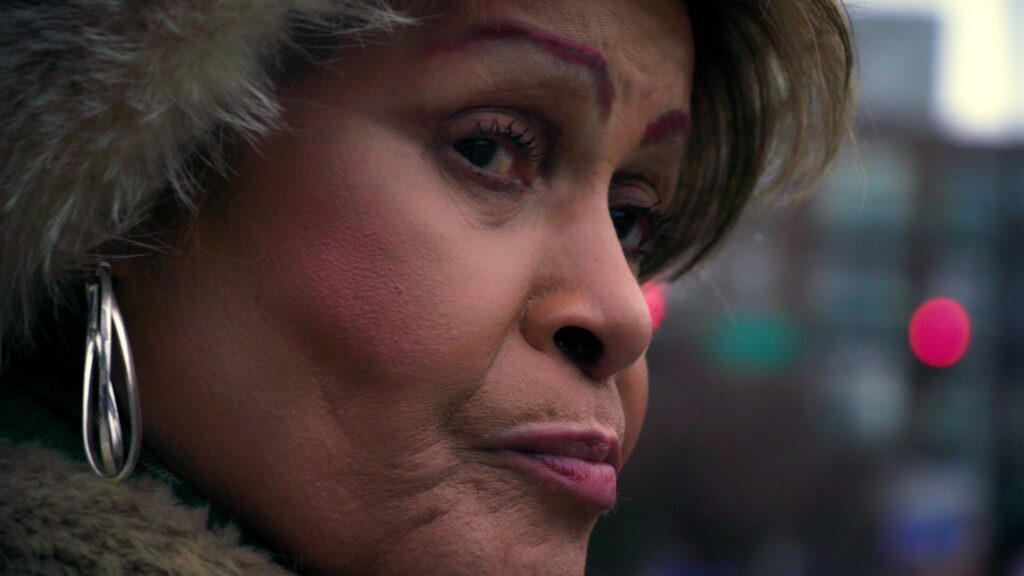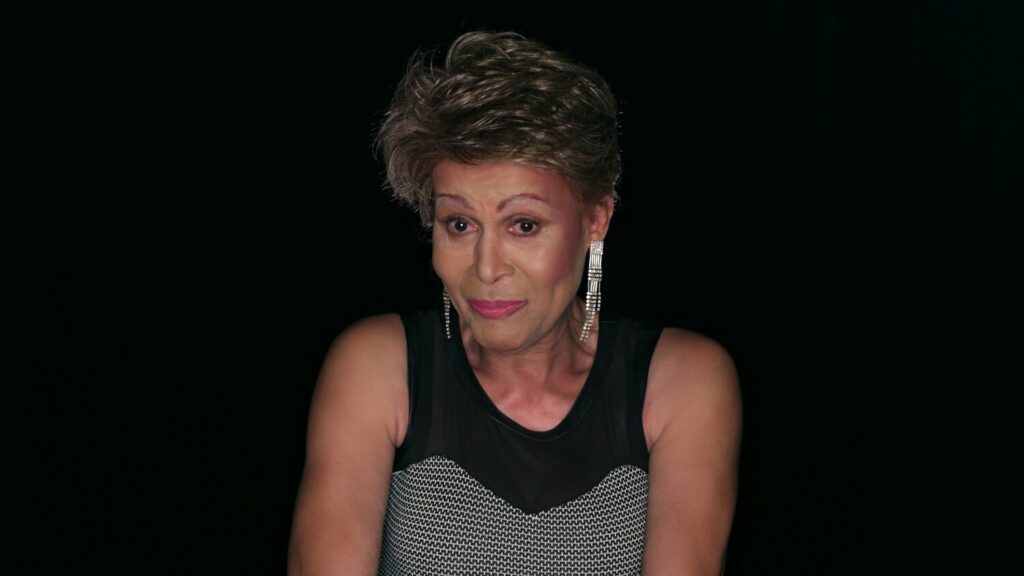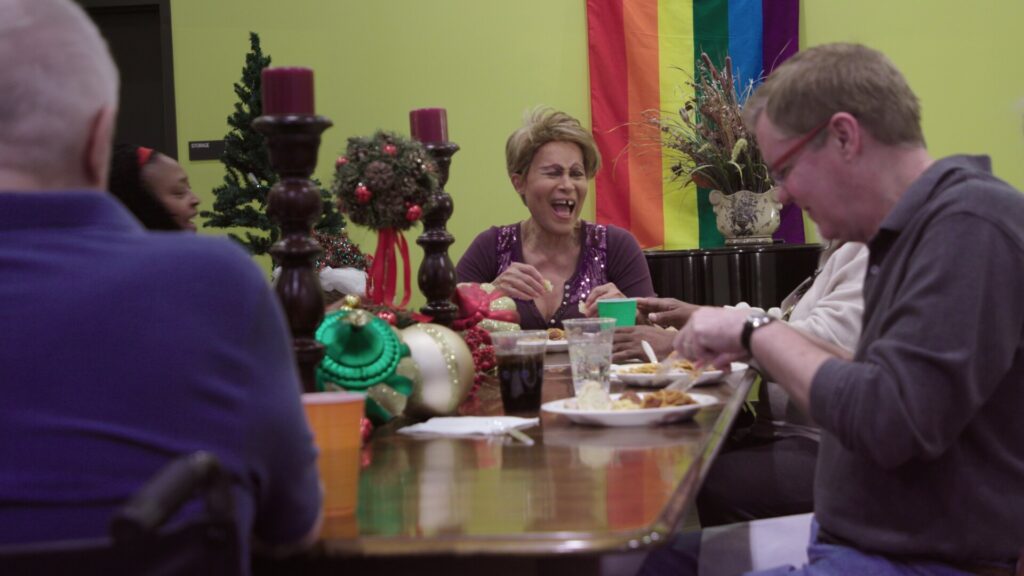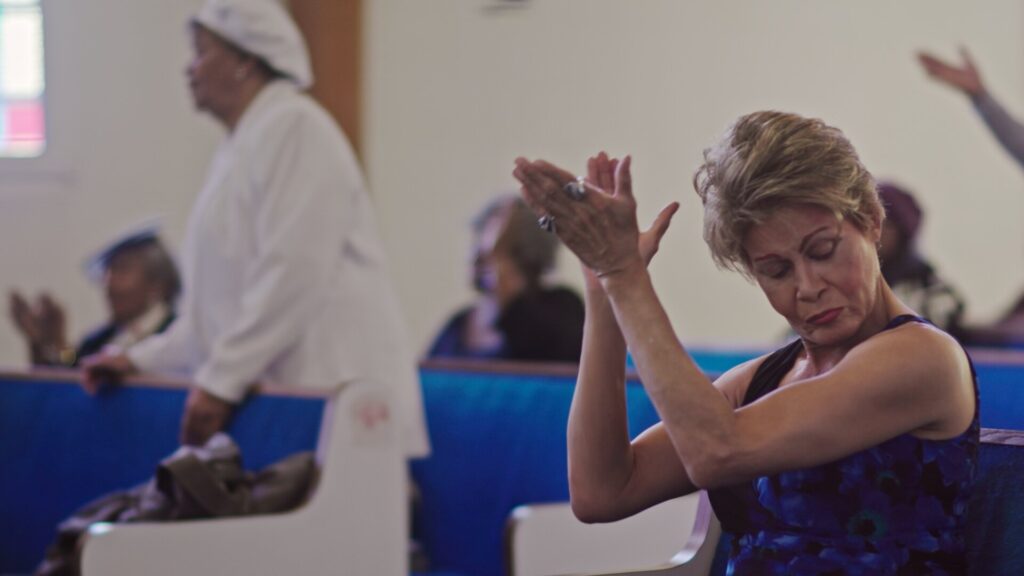Vale Mama Gloria Allen
Chicago’s trailblazing Black transgender elder icon and activist Mama Gloria Allen has passed away.
Chicago transgender icon and activist Gloria Allen, who founded and ran a charm school for homeless trans youth and was the subject of the award-winning documentary Mama Gloria and the critically acclaimed play Charm, has died at the age of 76.
Allen’s body was discovered Monday morning in her apartment at the LGBTQ-friendly senior residence Town Hall Apartments in Chicago. She is believed to have died peacefully in her sleep. She is survived by several siblings and numerous nieces and nephews, as well as her chosen family.
Allen was born in Bowling Green, Kentucky, on October 6, 1945. She grew up in Chicago amid the legendary drag balls on the city’s South Side and transitioned before Stonewall with the love and support of her mother Alma, a showgirl and former Jet magazine centerfold, and her grandmother Mildred, a seamstress for crossdressers and strippers.

Allen overcame traumatic violence in high school to become an out and proud leader in her community. She earned a LPN and worked at the University of Chicago Hospital and in private homes as a nurse’s aide. In her later years, she pioneered a charm school for young transgender people at Chicago’s Center on Halsted, offering lessons on love, makeup and manners that she received from her mother and grandmother. The young people affectionately nicknamed her “Mama Gloria.”
Her life and activism were featured in the Chicago Tribune and served as inspiration for the hit play Charm, written by Philip Dawkins. The play premiered at Steppenwolf Garage Theater in Chicago before traveling to Minneapolis, Washington, D.C., Los Angeles and New York.
For her work with the charm school, Allen was awarded the Living Legend Award by Janet Mock and Precious Brady-Davis at the 2014 Trans 100 Awards. She famously appeared on the cover of the book, To Survive on This Shore, with photographs and interviews of trans and non-binary elders by Jess T. Dugan.
Her story was featured in People magazine, the 19th News, the BBC and NowThisNews. In 2021, she received SAGE’s Advocacy Award for Excellence in Leadership on Aging Issues at the National LGBTQ Task Force’s annual Creating Change Conference.

In 2020, she became the subject of the acclaimed documentary feature Mama Gloria, directed by Luchina Fisher, whose film was not only a tribute to transgender women, but a heartfelt expression of allyship — Luchina has a teenage transgender daughter, Gia.
In loving memory of Mama Gloria, please enjoy this interview with Fisher about her compelling subject.
Why did you want to make a film about Gloria Allen, and why is her story important right now?
Once you meet Gloria (in the film), you will understand why I wanted to tell her story. She’s an incredibly funny, charismatic, caring and beautiful woman who has lived an extraordinary life. It’s important that people know the history that she has lived, coming out of Chicago’s Black drag ball culture in the ’50s and ’60s and transitioning before Stonewall with the love and support of her mother and grandmother. I believe that support has carried her through her life — she’s now 75 — and helped her to overcome traumatic violence and become a leader in her community by starting a charm school for homeless trans youth.
For transgender people, especially Black trans women, Gloria’s story is inspiring and a connection to their past and future. For families of trans people, this story shows the importance of loving and supporting our family members as they come out so they can live long, meaningful lives. For audiences who have never met a trans person or think they haven’t, the film is an opportunity to meet Gloria and perhaps change the way they experience trans people. I believe stories have the power to affect our hearts and minds and ultimately lead to change.
Filmmaker Luchina Fisher
Why do you think that despite progress in LGBTQ rights there is more violence than ever against the trans community?
In many ways, this is what happens in America when minority groups gain visibility and rights. There is a backlash. I believe discrimination and violence go hand-in-hand. Because it is exponentially harder for trans people, particularly trans people of color, to get jobs, access health care and keep housing, they are more vulnerable to violence. Trans people have been the last to benefit from the progress the LGBTQ community has made, and right now they are at the center of a cultural war. The hate-filled rhetoric, followed by Republican-led states proposing and passing legislation that discriminates against trans people and the Trump administration’s rolling back of trans rights, have led to a 34-percent increase in hate crimes over the last four years and 2020, as the deadliest year on record for trans people. We have to stop this de-humanization of transgender people. They are our grandparents, aunts, uncles, parents, children, friends, peers, co-workers and community members. They are our family.

Please tell us about your personal connection to the transgender community.
In addition to being a filmmaker, I am the mother of three children, including a 17-year-old daughter who identifies as transgender. My husband and I have always supported our daughter, including when she came out at age 13 in our small town. We sent a letter as a family to the entire middle school and received nothing but love and support from the entire community. We shared our positive story and were overwhelmed by the positive response to it. Today, our daughter Gia is a national advocate for trans and LGBTQ youth for The GenderCool Project and the Human Rights Campaign. My husband and I serve on HRC’s Parents for Transgender Equality Council.
What do you think the LGB community is missing in terms of protecting transgender men and women from violence?
I am glad to see that the LGB community is finally giving trans people and particularly trans women of color their due when it comes to recognizing their rightful place at the inception of the gay rights movement. Now, it’s time to lift up our trans members. I love that Alphonso David, the head of the Human Rights Campaign, has made this a centerpiece issue, because he understands that when we lift the most marginalized among us, we lift everyone. In this moment of racial reckoning, I believe the LGB community has a greater understanding of how multiple identities can impact a person’s experience in this country and make them more vulnerable to discrimination and violence. And the Black Trans community has demonstrated that they will not be overlooked in this moment. I never felt more encouraged than this summer when I saw thousands marching nationwide for Black Trans Lives.
Why is Mama Gloria someone we should all — no matter how we identify — pay attention to and get to know?
Mama Gloria blazed the trail for trans people who came after her and she continues to reach out to her chosen children today. We have to honor our legends while they are still here. As Janet Mock says at the start of the film and Shea Diamond sings in our original song, “Stand up in the presence of a legend.” Beyond the community, Gloria is a model of aging. Never expecting to live past 40, like so many Black trans women, she greets each day with joy, gratitude and grace. That is something for all of us to embrace.
For more details on Mama Gloria visit: https://www.mamagloriafilm.com






